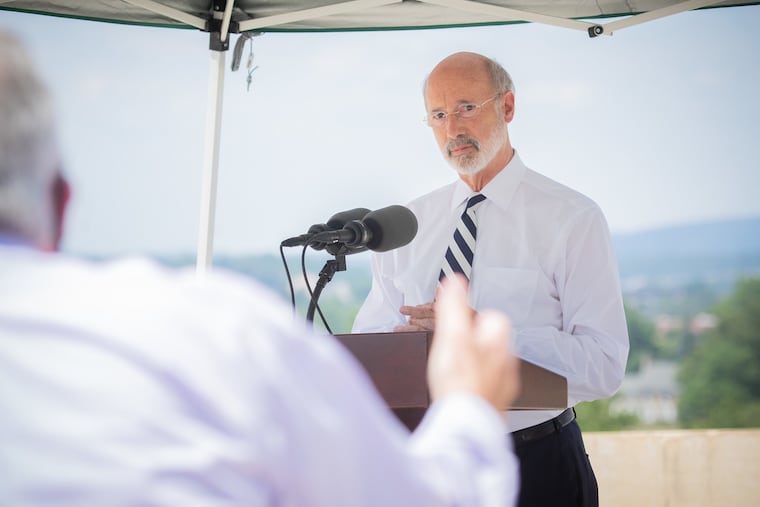Government transparency must be central to the new normal of coronavirus | Editorial
Government entities are compelled by law to answer information requests — and should continue doing so.

When does a crisis become an excuse?
Over the weekend, Gov. Tom Wolf announced that he will reluctantly allow a transparency bill that passed unanimously in both chambers of the General Assembly to become law without his signature. The Republican-crafted legislation compels the administration to resume its responses to requests under the state’s Right-to-Know Law — a practice that was suspended in March as the government transitioned to work-from-home.
The bill became a priority after businesses, lawmakers, journalists, and residents raised questions about the administration’s decision-making at the height of the pandemic, including which businesses were deemed life-sustaining and which qualified for a controversial waiver program — which led Senate Republicans to sue the administration.
Wolf had threatened to veto the bill in the past, arguing that it will put state employees in danger by forcing them to come back to work on site. In a statement released Sunday, he stated that he will allow the bill to become law, despite concerns.
Maintaining a balance between employee safety and continued operations has been a hard task for many businesses and organizations — not just government.
» READ MORE: Gov. Tom Wolf will allow transparency bill to become law despite veto threat
Still, there is some irony in Wolf’s statement. After all, as governor, he is the one who led the state’s reopening plan, pushing Philadelphia to transition to yellow and green even if it hadn’t met the caseload criteria. That plan directed workers in gyms, libraries, indoor shopping malls, and soon, potentially schools, to work on site — with safety precautions that should ensure employees’ health. So why doesn’t that same directive, and those precautions, apply to state employees whose work product is transparency?
In the same statement on Sunday, Wolf called on legislators to pass a law that will provide the public access to their secret emails and calendars. Both existing Right-to-Know Laws and necessary new laws like the one Wolf suggested are critical to holding the government accountable, especially important during this kind of prolonged crisis.
Like the state, the City of Philadelphia also suspended its Right-to-Know operations. The city is required to respond to requests within five business days, with an allowance of a 30-day extension for specific reasons. Since mid-March, these deadlines have been suspended for all requests. According to the Mayor’s Office, the city still continues to process requests. The speed depends on the department and where they are in their phasing back to full capacity. And while some requests, such as for email communication, can be processed virtually, the Mayor’s Office says they require in-person legal review.
Right-to-Know Laws have deadlines for a reason. Government entities are compelled by law to answer information requests. There are just too many outstanding questions on recent decision-making, both on the state level and the city level, for excuses. All Right-to-Know deadlines should be restored. For the rare cases that require in-person interaction that can’t be done safely, there should be an extension — but that should not be the default. And if it is truly unsafe to do any on-site work, maybe Pennsylvania shouldn’t be all green.